Trade between countries depends on standard guidelines, such as ex works exw, to guide how buyers and sellers handle their responsibilities. Of these terms, EXW (Ex Works) stands out as one of the most basic arrangements used in international trade. EXW shipping understanding is key for businesses trading internationally, since it can change costs, risks and the way the supply chain is operated.
What is EXW Shipping and How Does It Work
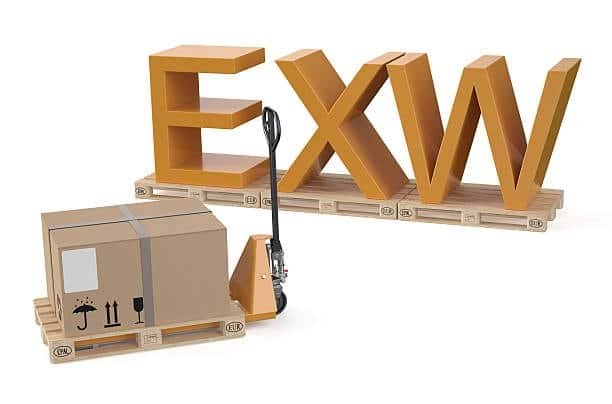
In Ex Works (shortened to EXW), the seller’s job is light while the buyer’s role is more involved. By EXW terms, the seller must make the goods accessible at their premises which is often a factory, a warehouse or another agreed-upon spot, highlighting the buyer’s responsibility . All the related risks and the process of shipping, insuring, checking customs requirements and getting goods to the buyer fall on the buyer after collection.
The seller is responsible for giving the goods when they are ready to be picked up as set by the agreement, but the buyer is responsible for all further arrangements . Buyers must manage all aspects of transportation which means arranging and paying for loading, export documents, insurance and getting the goods to the end destination. Because many manufacturing buyers look after shipping arrangements themselves, EXW terms are much more common in that industry.
Key Responsibilities Under EXW Terms
Since EXW terms put most responsibilities on the buyer, both parties should know their obligations exactly, and the buyer assumes responsibility for all costs thereafter . EXW sellers are required to protect goods, put on the requested labels and supply them at the decided time and location. They should also give the buyer the commercial invoices and any required documents for export formalities.
If the buyer goes for EXW, they must manage the shipment pickup, take care of all export regulations, secure all required licenses and permits, take care of insurance and handle all costs associated from where the seller hands over the goods to their final destination. Customs clearance must occur in both the export and import stages and you will also face costs for shipping goods internationally and for any storage or handling during transit.
Advantages of EXW Shipping for Buyers
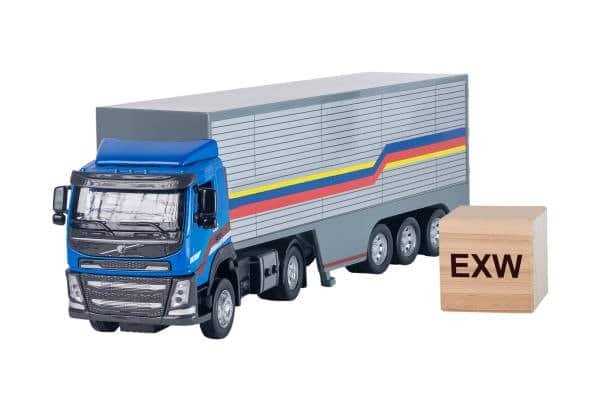
EXW shipping helps buyers who want to keep their supply chain activities under close control. As primary benefits, buyers can manage every aspect of shipping which lets them decide on the best carrier, routing and service level. Because of this control, companies can save money, including on shipping costs since seasoned buyers use their strong connections and negotiate discounts on logistics services.
Direct contact between buyers and everyone involved in shipping makes issues easier to address and everything move smoothly throughout transport. Under EXW, buyers can gather orders from different vendors and ship everything together which can help reduce delivery costs. If a company has in place logistics, it is likely to choose EXW terms since this makes it easier to add new suppliers to their system.
Benefits for Sellers Using EXW Terms
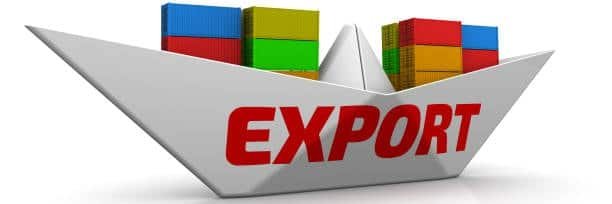
The main reason sellers like EXW terms is that they help avoid complex and risky situations in selling abroad. The best feature is that buyers handle logistics, permitting companies to work on key parts of their business rather than organize global shipments themselves. This lessens operating duties and does away with the requirement for export logistics experts.
Because of EXW terms, sellers have sure pricing and find it simpler to handle costs, since they are only responsible for their goods and local delivery. Sellers can transfer the risk of international transit, customs and problems at the destination early through using guaranties. Small manufacturers or suppliers just starting in global trade can use EXW terms and an ex works agreement , as they do not need much logistics support.
Common Challenges and Risks in EXW Shipping
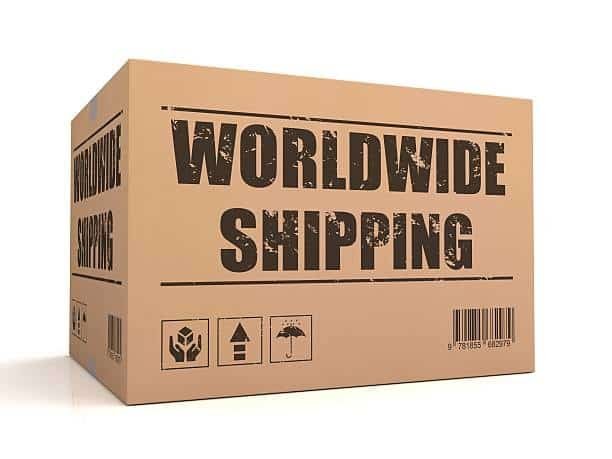
Although EXW shipping is beneficial in many ways, it also has some difficulties that need careful handling. The biggest concern for buyers is taking on the responsibility of handling unknown export rules, customs requirements and local regulations in the country of the seller. New buyers can run into extra costs, delays or compliance-related problems that might harm their company’s finances and smooth operations.
Misunderstandings between buyers and local providers may cause even more problems when language or business habits are different. There is a danger for sellers when buyers collect products, since this could slow down the process of getting payments. There may also be problems over liability if items stored at the seller’s place become damaged or polluted while the buyer is arranging pickup, including ensuring proper export customs clearance .
EXW vs Other Incoterms: A Detailed Comparison
Comparing EXW with other Incoterms enables businesses to pick the right shipping methods. FOB terms mean sellers handle export procedures and loading at the point of shipment, but in EXW terms, it is the buyer who must handle these responsibilities. With CIF (Cost, Insurance and Freight), the seller organizes the transport, pays for it and also takes care of insurance for the goods.
When you use DDP (Delivered Duty Paid), the seller ships the items, arranges all customs paperwork and delivers them right to the buyer’s premises. FCA (Free Carrier) terms are between EXW and FOB, so sellers are required to receive and move goods to a buyer’s selected carrier while handling export duties. The structure of costs, who manages the risks and the way operations are done differ for each arrangement and should match the business’s abilities and wishes.
Documentation Requirements for EXW Shipments
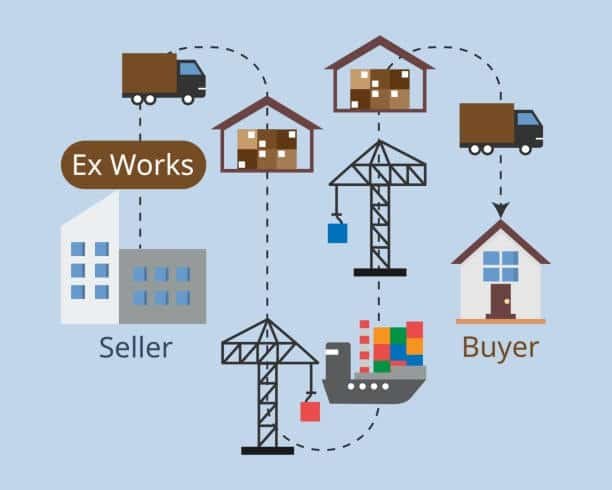
Clearly writing down everything and keeping it all organized is important in EXW transactions and the buyer is mainly responsible for handling the necessary paperwork. Commercial invoices supplied by sellers, lists of items contained in the shipments and export licenses are the main documents needed. If shipping, buyers are responsible for handling bills of lading; if air transport is chosen, it is air waybills that are required.
Other important documents are certificates of origin, inspection certificates, insurance policies and any approvals needed by a certain product category. Buyers are responsible for organizing customs declarations, proof of duties paid and delivery notes. Good documentation is needed for customs, insurance and obeying regulations during shipping.
Cost Considerations and Pricing Strategies
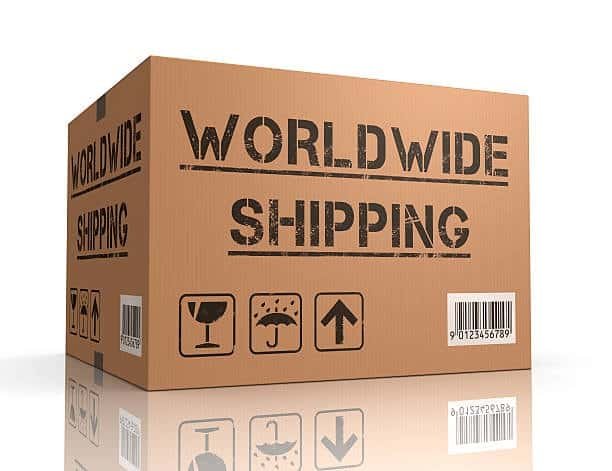
For EXW pricing to work well, all the costs must be carefully sorted out to make sure the business remains successful and in demand. Firms need to exactly figure out their costs for making, packaging, handling and preparing all the necessary paperwork. Margin should be set properly and products should appeal to customers, as they need to cover their own logistics expenses to calculate the final purchase price.
Nobody making a choice about EXW deals should overlook local pickup fees, export handling costs, global shipping, insurance, customs fees and destination-related charges. There are also hidden expenses for storage, documents and charges for anything left in the container after delivery (demurrage). Examining total landed costs under various Incoterms can allow buyers to choose suppliers that fit their overall purchase plans.
Insurance and Risk Management in EXW Transactions
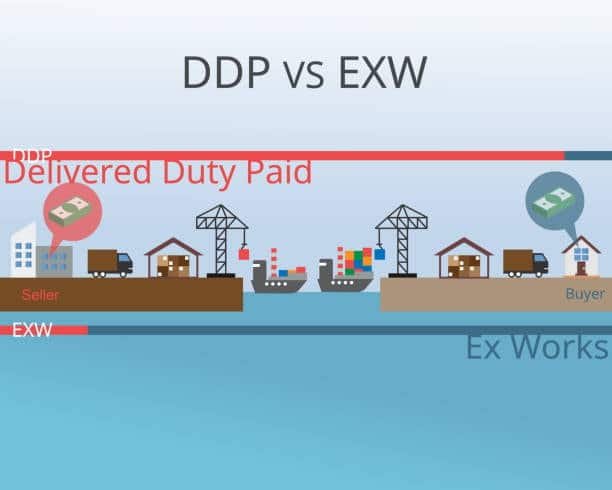
Taking on the risk as soon as sent is delivered is why risk management is more important in EXW transactions. From the time goods are loaded on a truck to when they are handed over to the customer, the goods are covered by the insurance policy. People shipping goods should review different types of insurance such as marine cargo insurance, warehouse-to-warehouse coverage and specific insurance for high- or sensitive-value items.
Important factors in insurance include coverage limits, the amount of any deductible which perils are not covered and how to file a claim which can change with each provider and type of policy free on board. It is also important for buyers to think about international commercial terms, including business interruption insurance which can compensate them if their goods are damaged or delayed during shipping shipping company. Working together with knowledgeable insurance brokers who know international trade risks helps you obtain the right level of protection buyer’s designated method.
Best Practices for Successful EXW Shipping
When best practices are followed, the shipping process works better for everyone. Clarifying the pickup times, packing and paperwork expectations between buyers and sellers avoids issues and mix-ups. If the contract states exactly what needs to be done, on what schedule and what to do in case problems arise, it covers all parties carriage paid.
To make logistics go smoothly, buyers should develop trustworthy connections with agents or logistics companies in supplier countries. Continuous tracking of goods, good contact with carriers and setting up good crisis plans all help protect costs and risks. Reliable packaging, precise paperwork and scheduling flexibility help a seller meet buyers’ demands and have good business ties transportation costs.
Legal Implications and Compliance Requirements
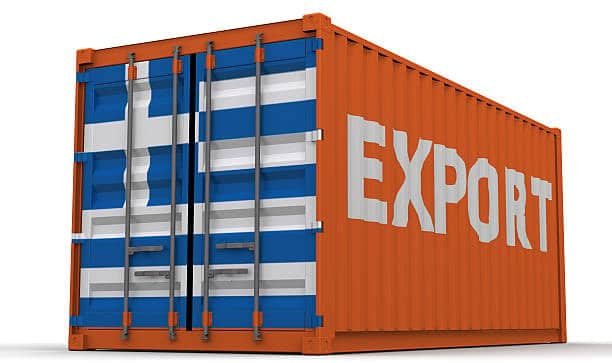
Depending on the country and what is being exported, EXW transactions require careful attention to many legal details. Successful exporting calls for understanding and obeying export control regulations, trade sanctions and licensing procedures. If buyers act as exporters, they should learn about export rules in the supplier countries and make sure they are followed to prevent problems with the law free alongside ship.
You should ensure the contract mentions the laws governing the contract, tells how conflicts will be handled and limits the liability for each party. Risks from intellectual property, potential product problems and obeying regulations should also be handled domestic market. Practicing international trade law protects your agreements by helping you create contracts that can be enforced no matter where they are signed seller’s premises.
Conclusion
EXW shipping means buyers have the biggest responsibilities and sellers have the smallest. For buyers already familiar with the market, this setup means being able to manage and control their suppliers. Still, a successful project calls for detailed planning, solid risk control and a good grasp of what needs to be done and what it will cost actual fees.


Thank you for reading!
Have questions, corrections, or better ideas? We’d love to hear from you!
We value every piece of feedback and promise to reply within 24 hours. Let's make this guide better together!
Note: Spam comments will not be published.